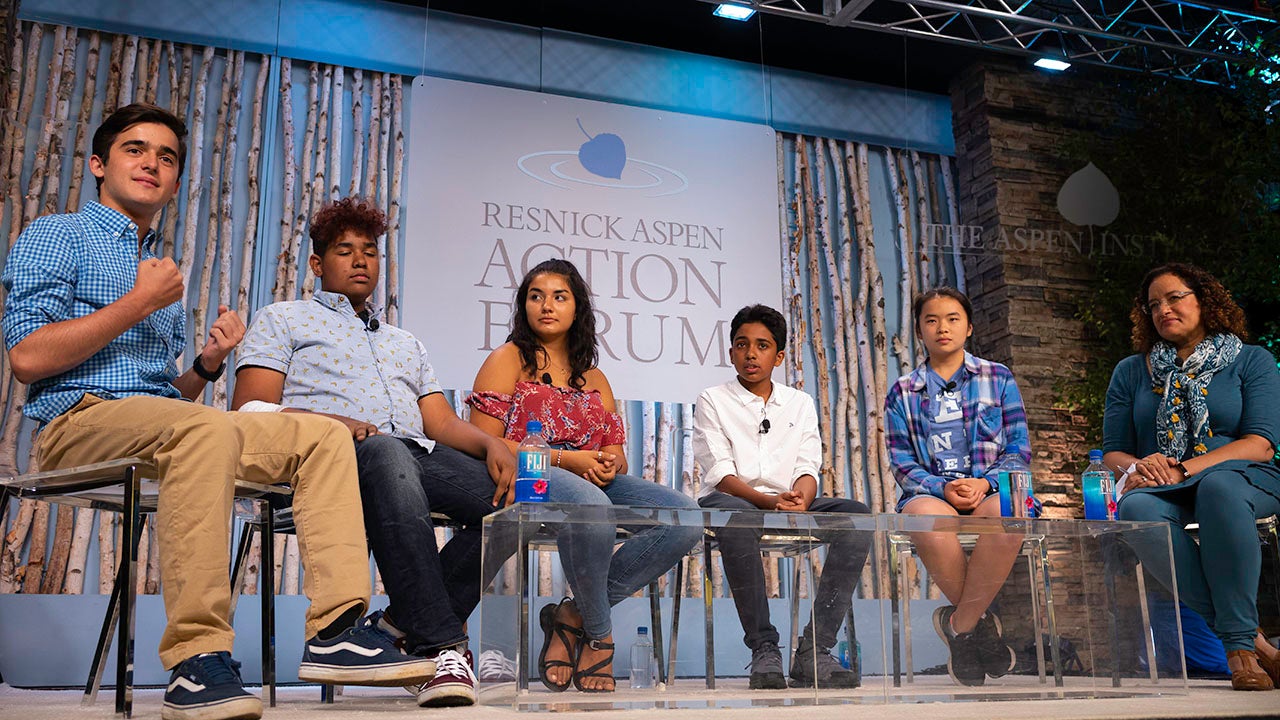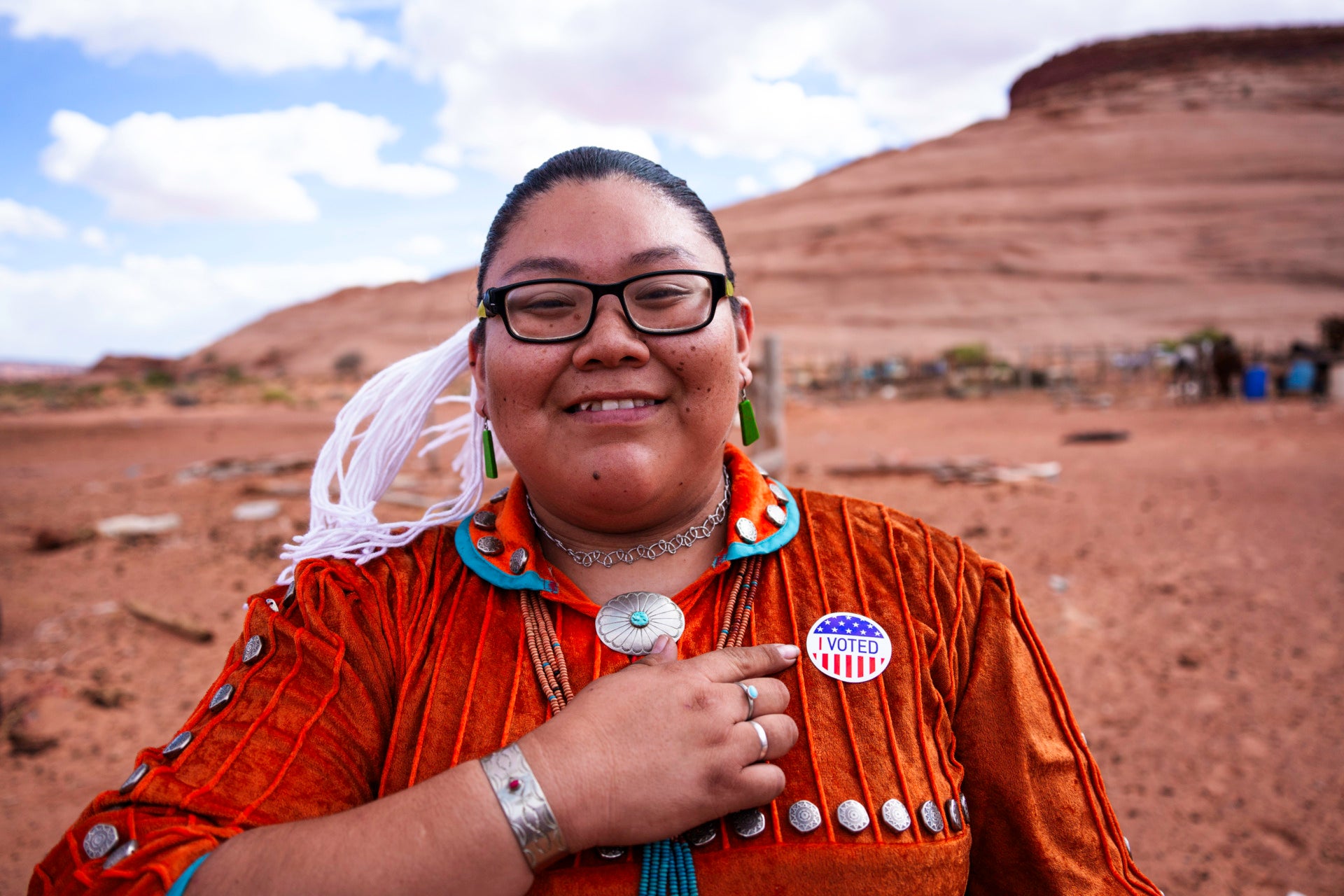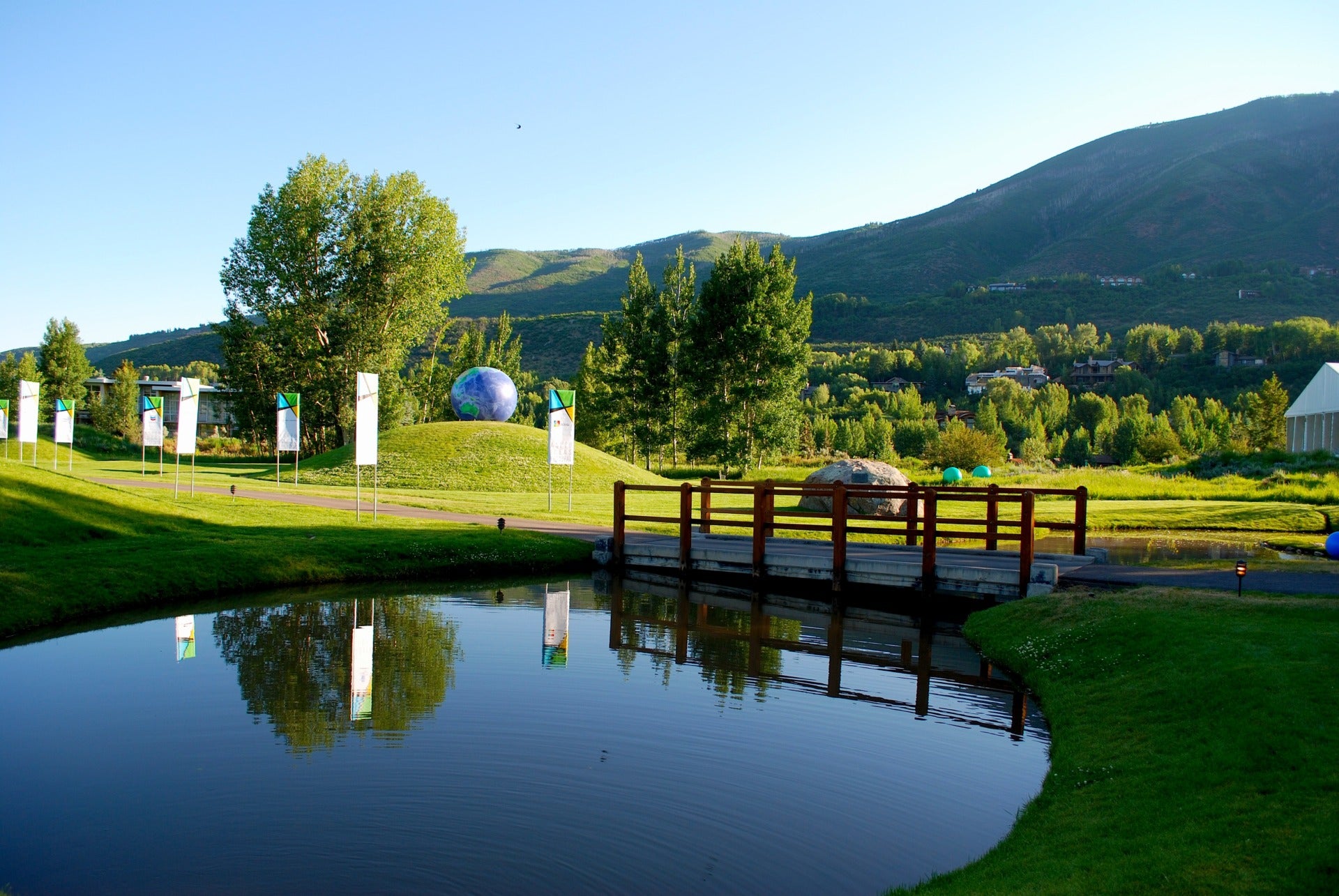When Dan Porterfield was asked to be the president and CEO of the Aspen Institute he was struck with genuine fear. After spending seven and a half years at the helm of Franklin & Marshall College, he had grown to love the institution, its students, faculty, and staff, and the work they were doing together to advance educational justice. To move to Washington, DC and lead a think tank meant leaving his comfort zone. He knew he had to do it.
“Fearless leadership is leaving behind something you know you’re good at to try something else because you think you can serve in a new way,” Porterfield said.
At the closing session of the Resnick Aspen Action Forum, Porterfield was interviewed on this concept of fearless leadership by four members of the Aspen Global Leadership Network— Victor Reinoso, a Pahara-Aspen fellow, James Abraham, a Kamalnayan Bajaj fellow, and Ami Dror, a Henry Crown fellow.
Porterfield explained that his commitment to social justice was sparked by his mother. When neighbors tried to force an African family out of their all-white neighborhood through intimidation tactics, she stepped up to make them feel included. The experience made Porterfield confront his privilege as a white person living in Baltimore. “People like me who are white in America have to decide what kind of white person we’re going to be,” he said. “We have to make the active effort to level the playing field and promote justice.”
Although Porterfield knows that identity-based discrimination is deep in the human condition, he believes we must tackle this head-on. Conversations on inequity, injustice, racism, sexism, homophobia, and other forms of prejudice might hurt, but they are necessary. Porterfield commits to these conversations through his willingness to listen.
.@AspenInstitute president @DanPorterfield shares lessons on making a difference:
1️⃣ Collect partners.
2️⃣ Set goals.
3️⃣ Be undeterred, work hard, be optimistic, get good.
4️⃣ When you’ve had some success, amplify it.Watch: https://t.co/QjxKKDKHJ9 #AspenAction pic.twitter.com/qjQSjPZMPj
— Aspen Global Leadership Network (@AspenAGLN) July 29, 2018
As the new leader of the Aspen Institute, the fellows asked Porterfield to make an action pledge, something all AGLN members are asked to share at the Action Forum. He came prepared with two. The first is for the Institute and its employees to come up with a breakthrough concept that improves the quality of life in Washington, DC in a measurable and demonstrable way. The second was for the Institute to become the single greatest force for good of any organization in the next decade. Porterfield believes that challenges like climate change, political enmity, and the changing nature of work can be met through the efforts of groups like the Aspen Global Leadership Network.
“That’s what networks do,” he said. “They strengthen the activity of all the different partners together so we can have collective impact.”


